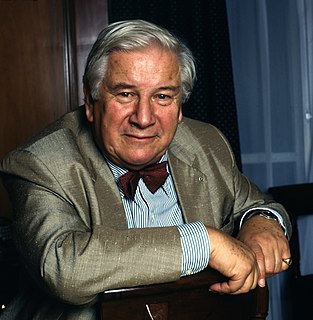A Quote by Thomas Huxley
I can assure you that there is the greatest practical benefit in making a few failures early in life. You learn that which is of inestimable importance that there are a great many people in the world who are just as clever as you are. You learn to put your trust, by and by, in an economy and frugality of the exercise of your powers, both moral and intellectual; and you very soon find out, if you have not found it out before, that patience and tenacity of purpose are worth more than twice their weight of cleverness.
Quote Topics
Assure
Before
Benefit
Both
Clever
Cleverness
Early
Economy
Exercise
Failures
Few
Find
Found
Frugality
Great
Great Man
Greatest
Importance
Intellectual
Just
Learn
Life
Making
Many
Moral
More
Out
Patience
People
Powers
Practical
Purpose
Put
Soon
Tenacity
Than
Trust
Twice
Very
Weight
Which
World
Worth
Your
Related Quotes
It does not matter how many tumbles you have in this life, so long as you do not get dirty when you tumble; it is only the people who have to stop to be washed and made clean, who must necessarily lose the race. And I can assure you that there is the greatest practical benefit in making a few failures early in life. You learn that which is of inestimable importance
I could take the greatest deal-makers of all time and they've always had something that didn't quite work out. You never want to put yourself in the position where something not working out is bigger than what you are and therefore takes you down. It's got to be in smaller chunks. In all cases, I want to learn something from things that didn't quite work out and learn, so that it doesn't happen again or so that in the future, you make great decisions. You don't want to make the same mistake twice and you have to learn that early on in your life.
You must all know half a dozen people at least who are no use in this world, who are more trouble than they are worth. Just put them there and say Sir, or Madam, now will you be kind enough to justify your existence? If you can't justify your existence, if you're not pulling your weight in the social boat, if you're not producing as much as you consume or perhaps a little more, then, clearly, we cannot use the organizations of our society for the purpose of keeping you alive, because your life does not benefit us and it can't be of very much use to yourself.
1. Turn all care out of your head as soon as you mount the chaise.
2. Do not think about frugality: your health is worth more than it can cost.
3. Do not continue any day's journey to fatigue.
4. Take now and then a day's rest.
5. Get a smart seasickness if you can.
6. Cast away all anxiety, and keep your mind easy.
This last direction is the principal; with an unquiet mind neither exercise, nor diet, nor physic can be of much use.
There’s a tendency for young people to get discouraged and frustrated easily. But don’t be afraid to fail. In many ways, we learn so much more from our failures than our successes. Remind yourself that failure is nothing more than a means to a greater end. Bide your time, learn from your mistakes, and lead by example. If you believe in what you’re doing, it will show.
Have no regrets. Every relationship leads you to where you're meant to be. Learn to be comfortable with being alone. Learn to be comfortable with saying no to people; we put everybody else before ourselves. Read great literature; don't get all your information from TV. Define your moral code - nobody else is going to give you that. Find it yourself. Keep asking questions, keep challenging. You don't have to conform. Rebellion creates character. And, as my mother always said to me, "Don't let anyone break your spirit!"
You go out into the world, you read everything you can read, you imitate the things you love, and you learn how hard it is to do. Eventually, you learn your own vision of the world, you learn your own voice and how to hear it, and you learn to write your own work. Writers today have as many opportunities as my generation did, but they don't see the examples as clearly as we did.
Historically, very few discoveries were made out of thin air. Most of the greatest insights depended upon the intellectual ecology in which the scientists lived. A certain critical mass of "new findings" occurred, and bright people all over the world found out about it, and several read the tea leaves the same way.

































